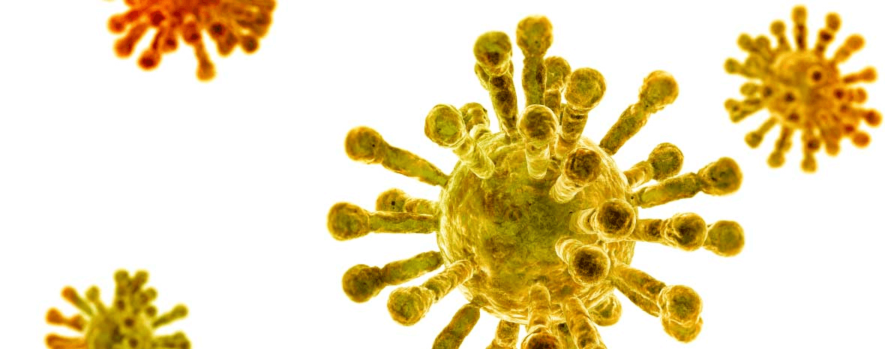
Members of the World Health Organization recently gathered in Geneva to determine whether to issue an international health emergency as the death toll rises from the spread of coronavirus.
Officials believe ground zero for the deadly infection is China’s centrally-located city of Wuhan. Upwards of 500 cases have been identified, and at least 17 fatalities have occurred. Incidents of coronavirus have spread across Asia to Thailand, South Korea, Japan, and Taiwan. But a confirmed case in Washington State has put global health organizations on high alert.
The first case of the pathogen was initially reported Tuesday, Jan. 21, after the American presented symptom the prior Sunday. Although reportedly listed in good condition at the Providence Regional Medical Center in Snohomish County outside Seattle, the fact the coronavirus was able to leap across the Pacific indicates it is no longer a regional danger. In the past, the World Health Organization has declared global emergencies to defend the spread of SARS, Ebola, and Zika, among others. Although the health organization does not hold enforcement power, the U.S. reportedly sent representatives to the coronavirus meeting from the Centers for Disease Control and Prevention (CDC).
In terms of a global spread, China is about to celebrate its Lunar New Year, and upwards of 10 million people are expected to travel across Asia in packed public transportation. Because the sometimes fatal virus can be transmitted from person to person, a surge of infected people is anticipated in the coming weeks. As the infected travel home from the Lunar New Year Celebration, the door of a pandemic could be opened. Already, increased health screenings at U.S. airports are underway in San Francisco, Los Angeles, and New York. More are expected to be placed on alert in the coming weeks.
People who work in travel, healthcare, and other sectors are advised to take preventative measures. The following information can help you make informed decisions about how to protect yourself and others from contracting coronavirus.
What You Need to Know About Coronavirus
It’s essential to know that the term “coronavirus” refers to a group of viruses that cause symptoms ranging from seemingly minor illnesses consistent with the common cold to deadly cases similar to Severe Acute Respiratory Syndrome (SARS), among others. The coronavirus is also considered a strain of the Middle East Respiratory Syndrome, known as MERS-CoV, which causes symptoms similar to pneumonia. What has officials gravely concerned is that coronavirus can be transmitted from human-to-human, animal-to-animal, and animal-to-human. This fact heightens the pathogen's ability to spread globally.
Health organizations believe the initial outbreak is linked to a Chinese seafood and animal wholesale market in Wuhan that was shut down on Jan. 1 for “environmental sanitation and disinfection,” according to the World Health Organization. The city of Wuhan is home to approximately 11 million people, and the Lunar New Year celebration will pack this ground zero. These are frequently asked questions about coronavirus that may prove valuable to understanding the health risk.
Why is Coronavirus Often Called MERS-CoV?
The underlying coronavirus is the root cause of MERS sickness. The CDC tends to simplify the verbiage by referring to it simply as MERS.
What Caused the Coronavirus?
The virus originated from animals located on the Arabian Peninsula. The virus was transmitted among animals, including camels, where it may have jumped to humans. The data about its spread among mammals remains incomplete.
What are the Telltale Signs of Coronavirus?
What remains problematic in identifying MERS-CoV is that symptoms tend to mirror common colds and the onset of pneumonia. They usually include coughing, fever, and shortness of breath. Some cases have presented with extreme symptoms, including nausea, vomiting, and kidney failure, among others. In most cases, symptoms emerge within 5-6 days. However, the virus can lay seemingly dormant for up to two weeks.
How Can I Protect Myself Against the Coronavirus?
Both the WHO and CDC urge people working in the healthcare sector or industries that come in contact with travelers who may be infected to practice health and safety protocols and wear appropriate personal protective clothing and equipment.
Recommended Health Safety Protocols to Prevent Coronavirus Infection
The first defense against coronavirus is to take proactive measures to minimize the chances of exposure. Organizations such as the CDC and WHO advise at-risk people to use best practice and personal protective equipment to reduce airborne and skin-to-skin contact such as the following.
- Quarantine the Risk: Identify and isolate coronavirus patients in healthcare facilities.
- Clean Air Policy: Implement Respiratory Hygiene and Cough Etiquette, such as providing the infected person with a face mask.
- Hand Hygiene: Healthcare professionals and workers who may come in contact with potentially infected persons are advised to wash hands before and after putting on protective gloves. Hand washing should include 20 seconds of soap and water, followed by an alcohol-based treatment.
- Wear Protective Gloves: At-risk people are urged to wear certified disposable gloves and discard them after use.
- Wear Protective Clothing: Gowns and other appropriate body coverings are advised in a healthcare setting and environments that could pose a health risk.
- Wear Respiratory Protection: The use of disposable respiratory equipment such as face masks and ventilators are advised when working with infected people or in industries such as airports, among others.
- Wear Eye Protection: Goggles, face masks, and face shields should be appropriately worn in high-risk areas such as patient rooms.
It’s essential for those working in the healthcare and travel industries to take enhanced precautions as the WHO and CDC release information and work diligently to control the spread of the coronavirus. Global reports of the easily-spread coronavirus require immediate, enhanced protections. International Enviroguard has been the go-to manufacturer for disposable protective clothing during times of crisis.